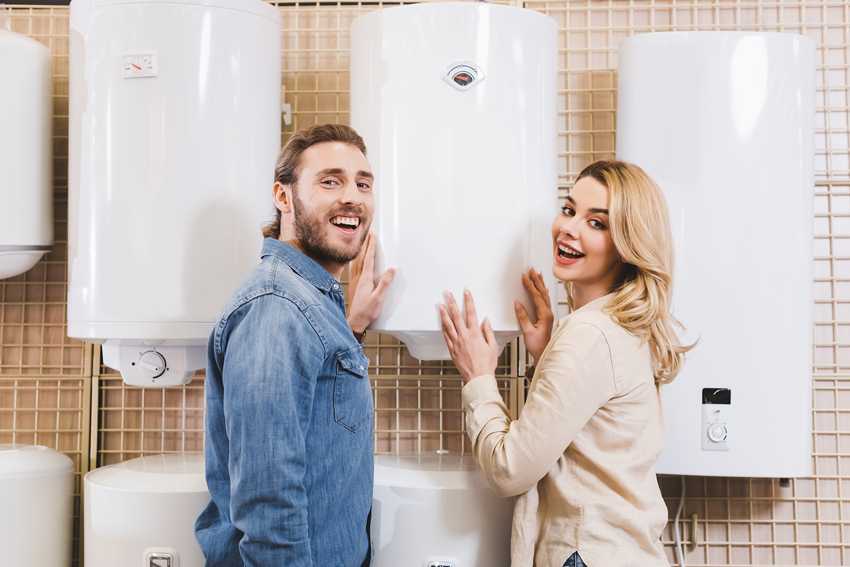Upgrade to Endless Hot Water with Professional Tankless Water Heater Installation in Philadelphia & Surrounding Areas

Tankless vs. Traditional Water Heaters: What’s the Difference?
When it comes to supplying hot water for your home, you have two main options: traditional tank water heaters and modern tankless water heaters. Understanding the difference can help you decide which is best for your household.
Traditional water heaters store a set amount of hot water—typically 30 to 80 gallons—in a tank. The water is constantly heated to maintain temperature, which means energy is used even when you’re not running hot water. While these systems are effective, they take up significant space and can run out of hot water during heavy use.
Tankless water heaters, on the other hand, heat water on demand. Instead of storing hot water, they use high-powered heating elements or gas burners to heat water instantly as it flows through the system. This means you get endless hot water without waiting for a tank to refill, and because they only heat water when needed, they’re far more energy-efficient than traditional models.
Switching to a tankless system can reduce energy bills, free up space, and provide a continuous hot water supply—perfect for families, busy households, and anyone looking to improve their home’s efficiency.
How to Choose the Right Tankless Water Heater for Your Home
Selecting the right tankless water heater for your home isn’t just about picking the top-rated brand—it’s about finding a system that matches your household’s water usage, fuel type, and efficiency needs. Here’s what to consider when making your decision
1. Determine Your Home’s Hot Water Demand1. Determine Your Home’s Hot Water Demand1. Determine Your Home’s Hot Water Demand
Tankless water heaters are sized by flow rate (gallons per minute or GPM) and temperature rise (how much the unit must heat incoming water). The more fixtures you run at once—such as showers, sinks, dishwashers, and washing machines—the higher the required GPM capacity.
- Small households (1–2 people) → 4–6 GPM
- Medium households (3–4 people) → 6–8 GPM
- Large households (5+ people) → 8+ GPM
If your home regularly runs multiple fixtures at once, opting for a higher GPM model ensures you never run out of hot water.
2. Choose Between Gas vs. Electric Models2. Choose Between Gas vs. Electric Models2.
Choose Between Gas vs. Electric Models2. Choose Between Gas vs. Electric Models2. Choose Between Gas vs. Electric Models2. Choose Between Gas vs. Electric Models2. Choose Between Gas vs. Electric Models2. Choose Between Gas vs. Electric Models
Tankless water heaters come in natural gas, propane, and electric models. Your choice depends on availability, operating costs, and household needs:
-
Gas Tankless Water Heaters
- Best for larger households with higher demand.
- Higher initial cost but lower long-term energy bills.
- Require proper venting and gas line capacity.
-
Electric Tankless Water Heaters
- Ideal for smaller homes, apartments, or locations without gas access.
- Lower upfront cost but can be less powerful for multiple fixtures.
- More compact and easier to install.
3. Consider Energy Efficiency & Operating Costs
Tankless water heaters only heat water on demand, making them significantly more energy-efficient than traditional tank models. However, different models have varying levels of efficiency:
- Condensing Models (Highest Efficiency) → Capture and reuse exhaust heat for maximum energy savings.
- Non-Condensing Models (Standard Efficiency) → More affordable but require additional venting.
Look for ENERGY STAR® certified models for lower energy bills and reduced carbon footprint.
4. Factor in Installation Requirements
While tankless water heaters are more compact, proper installation is critical for optimal performance. Consider:
- Gas line & venting → Larger gas lines or additional venting may be needed.
- Electrical capacity → Some homes may need an electrical panel upgrade for high-power electric models.
- Location → Outdoor models are available for homes with limited indoor space.
5. Think About Recirculation & Advanced Features
For even faster hot water delivery, recirculating systems help reduce wait times, especially for homes with long pipe runs. Some premium models include:
- Smart controls with WiFi monitoring
- Leak detection & automatic shutoff
- Freeze protection for colder climates
Top Tankless Water Heater Brands and Models for the Philadelphia Region
When considering a tankless water heater for your home in Philadelphia and surrounding areas, it’s essential to choose a model that offers reliability, efficiency, and meets the specific demands of your household. Here are some top brands and their standout models:












